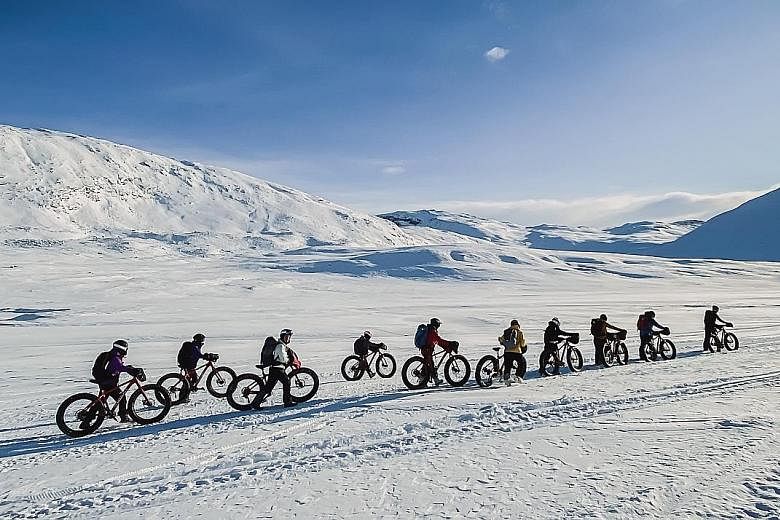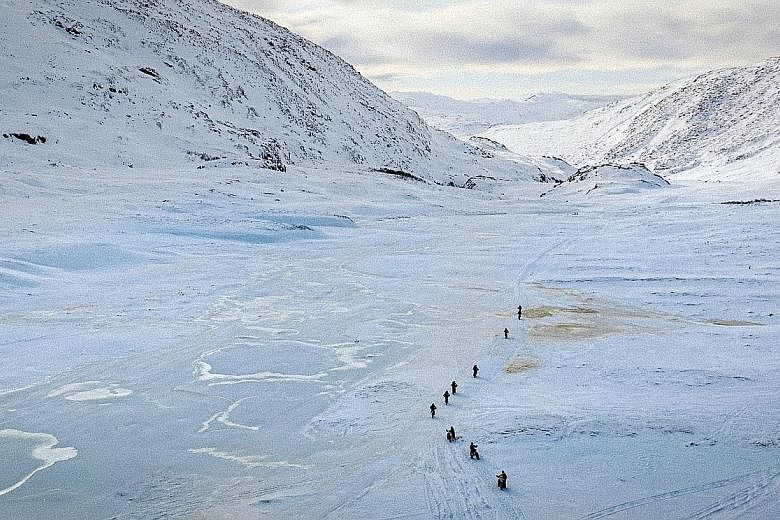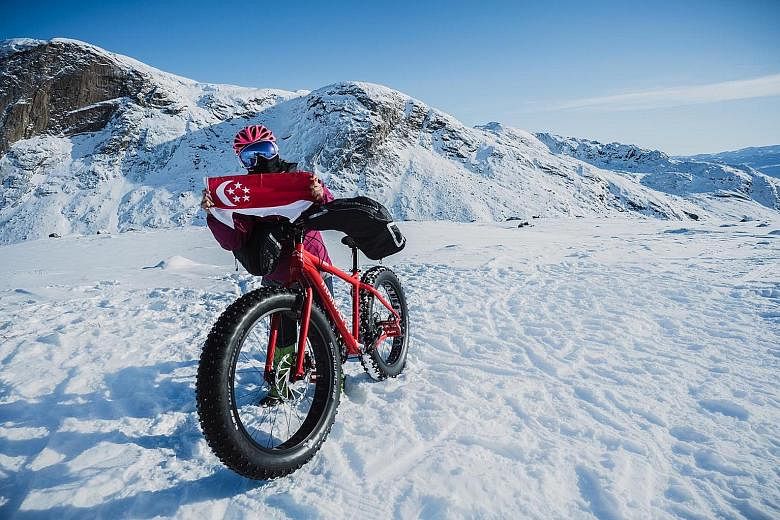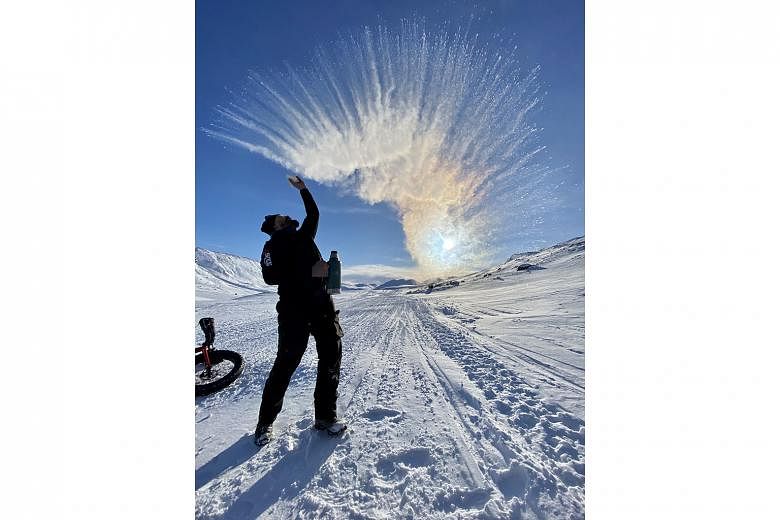Today, airports across the globe are deserted. Much of humanity is in lockdown. Yet when our all-woman expedition team landed in Greenland on March 4, there were no cases of Covid-19 in this faraway Arctic island.
We felt lucky that we had been able to push ahead with our expedition, which we had been planning for over a year. Our aim was to cross a section of the world's largest island, Greenland, on bicycles in the middle of winter.
This was to raise awareness and funds - a team total of $50,000 - for underprivileged women affected by climate change in Asia.
Our team of 10 women chose Greenland because it is one of the world's final frontiers.
Eighty per cent covered in ice, its glaciers are contributing to a rise in the global sea level faster than was previously believed.
As this accelerates, many coastal cities will be affected and Asian cities will be hit much harder than others, given their population, economic activity and landmass.
The processes that control sea-level rise are amplified in Asia. As a result, about four out of five people impacted by this change will, by 2050, be living in East or South-east Asia.
As we arrived in Greenland, we were conscious that because of the increasing fears about the pandemic, we might not be the most welcomed tourists. But we experienced no such prejudice.
In any case, over the next few days, we would be biking across one of the most barren and isolated regions of Greenland, the 200km Arctic Circle Trail, which connects the Russell Glacier with the western coast of the island.
We rode on fat bikes - off-road bicycles with oversized tyres, which were provided by our guides.
This week-long biking expedition saw us push our limits to the brink of exhaustion on multiple occasions in extreme conditions, with temperatures ranging from minus 20 deg C to minus 40 deg C.
-
COVID-19 ADVISORY
-
 For updates on Greenland's entry requirements, go to the website of the Government of Greenland (naalakkersuisut.gl/en). For tourism-related questions, go to its Visit Greenland website (visit greenland.com).
For updates on Greenland's entry requirements, go to the website of the Government of Greenland (naalakkersuisut.gl/en). For tourism-related questions, go to its Visit Greenland website (visit greenland.com).
Our team rode on varied terrain that ranged from powdery snow to slippery ice, mud and rock. We cycled up and down many hills and mountain passes and across vast frozen lakes and fjords.
The days on the trail were long and tiring, with no shelter from the bitter cold and wind for up to 10 hours each day. Sometimes, we reached our huts in complete darkness.
Despite the gruelling conditions, the esprit de corps was strong. The teammates looked after one another with kindness and compassion, all the more important in extreme conditions where there was no room for mistakes.
We disciplined ourselves to stay close together, despite the different pace of our biking because if someone got lost, hurt and left behind, she could freeze to death.
During the long days on the trail, we had no contact with the outside world. We often thought about our loved ones at home in these uncertain times. However, if truth be told, the lack of connection was a welcome reprieve from the onslaught of news about the coronavirus.
At the end of our journey, when we finally rode into the coastal fishing town of Sisimiut, the second largest city in Greenland with a few thousand people, it felt so strange to be back to civilisation after days in the vast emptiness of the Arctic.
There were cars, snowmobiles, dog sleds and people walking in the snowy streets, staring at our convoy of bikes. Suddenly we realised - that was it, we had done it. We had succeeded in becoming the first all-female team to fat-bike the frozen lands of the Arctic Circle Trail of Greenland. Yet, it was the team experience that bonded us, more than the achievement itself.
As we reconnected with the outside world and with our families via Wi-Fi, we realised that in the span of a week, the pandemic had exploded.
We had returned to a world in carnage - the number of infections was skyrocketing across Europe and the United States, especially, at that time. After days in isolation, the unrelenting bad news was almost too much. It was as if we had been cocooned in the Arctic - shielded from the world, a brief moment suspended in time.
The day after we flew out of Greenland, the island shut down its borders on March 13. There was a first positive case of Covid-19 in Nuuk, the nation's capital. As a result, the government decided to take swift action to safeguard its 56,000 inhabitants, 90 per cent of whom are Inuit indigenous people.
Our team flew home as countries everywhere were going into lockdown, grateful for this incredible adventure we had been able to experience together.
There is no doubt Greenland's savage beauty has cast a spell on us. This land, so wild and remote, has a fragility that is calling people to wake up to the quickening pace of climate change.
Fighting the coronavirus pandemic is appropriately the first priority for the world. This emergency may also lead to a deeper awareness of the ties that bind all of us, helping us get to grips with another emergency - the climate crisis.
• Christine Amour-Levar is a philanthropist, adventurer, entrepreneur and author. She set up Women On A Mission and HER Planet Earth, non-profit organisations headquartered in Singapore, to take all-women teams on challenging expeditions to off-the-beaten-track places worldwide as a way to support worthy causes.




